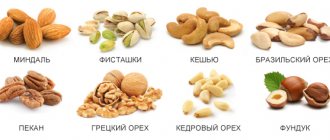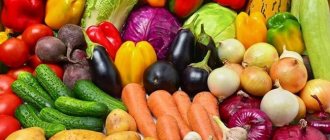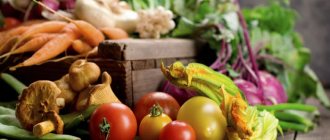Many diets, due to their low calorie content, allow you to lose a certain amount of extra pounds in a certain time. This diet differs from others not only in this quality, but also in the targeted selection of food products, which stimulates the active extraction of fat from adipocytes and its burning and its duration is 28 days.
Possible weight loss through this diet is from 7 to 20 kg. A tempting prospect, but to achieve a positive effect you will have to work hard! Let us immediately note that the diet implies strict adherence to nutritional methods, otherwise it is impossible to achieve good weight loss results.
Class Diet Requirements
Let us immediately note that the cool diet is suitable for people leading a fairly passive lifestyle, since its menu is low in calories. Active sports are not indicated with such a diet; it is better to limit yourself to light exercises or gymnastics. Otherwise, it is unlikely that you will be able to avoid weakness.
Before starting this technique, it is recommended to cleanse the intestines using laxatives and enemas. You can also resort to taking natural laxatives in case of constipation immediately during the period of following this diet.
The basis of nutrition on a class diet consists of the following products: lean meat fillet (the best choice is chicken or beef), eggs, vegetables and fruits, low-fat cheese, kefir and milk, black bread. The first three weeks the menu is the same. The fourth seven-day period mainly involves holding a kind of fasting monoday, when you need to eat certain foods. Everything is described in more detail in the “diet menu” section. The 21-day cool diet requires three meals a day. For the last 7 days of the diet, it is better to eat fractionally, stretching the proposed set of foods throughout the day.
While following the technique, it is forbidden to consume sugar, but it is allowed to include a small amount of honey in the diet. It is important that it is natural, without sugar.
To make the diet easier to follow, it is better to buy all the products in advance and plan the menu. Hang a printed menu in your kitchen so there are no questions about what to eat and when. It is also recommended to prepare food containers and bags so that you can take food with you to work or other places where you go. After all, you are unlikely to be able to find the food you need, say, in an office cafeteria or in catering establishments. To make it easier to count days and weeks, if you can, start dieting on Monday.
You don’t need to completely give up salt during your diet, but you should minimize its amount. As for hot drinks, you can leave weak coffee in your diet; it is better not to drink other liquids.
As a rule, weight comes off at different rates. During the first week, you usually lose from 5 to 7 kilograms. In the second and third weeks, weight loss is either very slow or may be absent altogether. Don't be alarmed, this is normal. During the last seven days, approximately another 9-11 kilograms will be removed from the body. Of course, the greater the initial weight, the more kilograms you will lose. It is very important not to violate the methodology and strictly follow the proposed menu. Otherwise, you may not only not lose weight, but even gain additional excess weight.
Considering the duration and complexity of the described technique, it is necessary to pay attention to the correct exit from it. This will help not only maintain the result, but also, possibly, get rid of a few extra pounds during the post-diet period.
Principles of the Maggi Egg Diet
The following principles of the Maggi diet can be distinguished:
- You can drink water in unlimited quantities during the diet. Moreover, this rule even applies to diet drinks with gases.
- It is allowed to drink coffee and tea, but adding sugar and milk to drinks is prohibited.
- Fats are not included in the menu.
- You can make soups from vegetables, but they are cooked in water, not in meat broth. It is allowed to eat onions, garlic and various spices.
- If you feel hungry, you are allowed to snack on cucumber, fresh vegetable salad, and carrots. However, a snack should take place no earlier than 2 hours after the main meal.
- Main meals cannot be swapped.
- During the diet, you need to adhere to an active lifestyle, but severe physical activity is unacceptable.
- Every morning, before breakfast, you need to step on the scales and first visit the toilet.
- If for any reason the diet is disrupted, then it must be resumed from the first day.
- If, after completing the diet, it was decided to repeat it, then you need to start from the first stage, and then move on to stage 4.
- Taking vitamin and mineral complexes during the weight loss process is not a prerequisite.
- The diet can be practiced at almost any age.
- Products from the permitted list can be consumed in any quantity, provided that there are no restrictions.
How much
weight can you lose on the Maggi egg diet?
In 14 days on the Maggi diet you can lose 10-15 kg of excess weight. If you need a more impressive plumb line, then you should extend the diet to a month.
Five main tips for the right exit from a diet
1. Control yourself
While following dietary rules, the body is likely to become hungry, which is why you may want to eat everything indiscriminately. The stomach will gladly support you, because it has not been fed so much “normal” food. It is very important to be vigilant after finishing the diet, especially in the first days. Be extremely careful about snacking. Even after a piece of bun, candy or other sweets, the kilograms lost with such difficulty will make themselves felt again. To avoid the wrong snacks, carry fruits, vegetables, and nuts with you. This will help you not to drown out the sharply awakened feeling of hunger with calorie harmfulness.
2. Introduce new products gradually
Over the course of a month-long diet, your stomach has become accustomed to processing the same food components, so you can’t help but lean heavily on what was forbidden, especially flour. Avoid drinking tea for as long as possible. It's still best to add a little quality honey to hot drinks. Be sure to provide your diet with a sufficient amount of protein: eat boiled eggs (primarily whites), chicken fillet (breast is especially good), low-fat cottage cheese. It is also useful to eat fresh vegetables, fruits, and berries (mostly non-starchy types). Whole grain porridges, vegetable soups, and various stewed vegetables are very useful for diversifying your diet.
3. Adhere to the principles of fractional nutrition
Breaking up your meals will help avoid repeated stretching of the stomach. Don't overeat, eat little and often. Ideally, eat 5-6 times a day. Firstly, this will help not stretch your stomach, and secondly, you will not encounter a feeling of acute hunger and the desire to overeat.
4. Drink water
Remember that every day you need to drink at least one and a half to two liters of clean water without gas (mineral water is possible). This norm is necessary for the human body to function properly. In addition, this practice will help you eat less.
5. Don’t eat 3-4 hours before going to bed at night.
Not eating a few hours before bedtime and having a light, low-calorie dinner will help you keep your weight within limits for a long time and forget about strict diets for a long time. It is useful to eat something protein for dinner (for example, lean meat or fish) in the company of a vegetable salad. Such a dinner will perfectly saturate the body and will not bring extra fat to the body.
Authorized Products
The list of foods that are allowed to be consumed during a protein diet is quite meager; this is a small minus of therapeutic nutrition. But be patient, try to find new recipes for combining ingredients for a salad or stew, and remember the result you are striving for.
The advantage of this diet is that you consume a lot of fiber, which will have a beneficial effect on intestinal function and help avoid constipation.
Here is the list of allowed products:
- fruits and berries - grapefruit, orange, tangerine, lemon, pineapple, kiwi, melon, watermelon, peaches, apples, cherries;
- vegetables - green salad, cucumbers, tomatoes, peppers, radishes, carrots, eggplant, cabbage, beets;
- beef, chicken, lean fish and turkey;
- bread, green tea and water;
- olive oil, low-fat cottage cheese.
Cool diet diet for three weeks
Day 1
Breakfast: half a liter of milk. Lunch: half a liter of milk. Dinner: 100 g of black bread and a glass of tomato juice.
Day 2 and 5
Breakfast: 100 g of black bread, greased with 20 g of butter; coffee, to which you can add a little milk and 1 tsp. natural honey. Lunch: 100 g of cooked beef or chicken fillet (without skin); 100 g low-fat cheese and 100 g black bread. Dinner: two chicken eggs, boiled or fried in a frying pan without adding oil.
Day 3 and 6
Breakfast: salad of two small apples and an orange or peach. Lunch: unfried vegetable soup (bowl); 2 boiled potatoes and 1 tsp. boiled green peas. Dinner: salad of two tomatoes and two cucumbers, 1 tsp. honey
Day 4 and 7
Breakfast: 100 g of cheese and a cup of coffee with milk. Lunch: 100 g of boiled beef or chicken fillet; 2 boiled chicken eggs; 100 g of black bread. Dinner: low-fat kefir (glass).
What dishes are included in the daily diet menu?
During the first and second weeks of the diet, eat 2 boiled eggs and ½ part of an orange for breakfast.
Dishes that should be eaten for the first 7 days are listed below.
1 day:
- Lunch – fresh fruit;
- Dinner – 0.15 kg of pre-boiled beef.
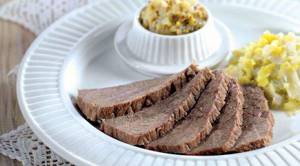
Day 2:
- Lunch – 0.15 kg of boiled chicken;
- Dinner – 2 boiled eggs, a portion of salad, the main ingredients of which are cucumbers, tomatoes, 1 slice of rye bread, 1 grapefruit.
Day 3:
- Lunch – a small amount of cheese, 2 tomatoes, 1 toast;
- Dinner – 150 grams of boiled or oven-baked veal.
Day 4:
- Lunch – 1 grapefruit;
- Dinner - a portion of meat baked in the oven, 100 grams of salad from cucumbers, carrots, white cabbage.
Day 5:
- Lunch – 2 soft-boiled eggs, 200 grams of vegetables, cooked in a double boiler;
- Dinner – 0.2 kg of boiled cod, 1 grapefruit.
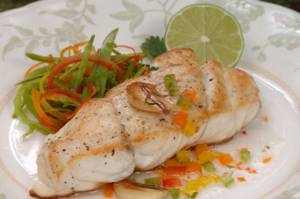
Day 6:
- Lunch – 1 orange;
- Dinner – 0.2 kg of boiled beef.
Day 7:
- Lunch: 0.2 kg baked chicken breast, 2 tomatoes, a portion of boiled vegetables, 1 orange;
- Dinner – 0.2 kg of steamed vegetables.
The diet for the second week of the diet includes: baked veal, cucumbers, eggs, chicken fillet, low-fat cheese, oranges.
During the third week of pregnancy, it is recommended to eat the following foods:
- Day 1: boiled, fresh vegetables;
- Day 2: boiled and fresh vegetables;
- Day 3: boiled vegetables, vegetable salads;
- Day 4: a portion of boiled hake, 0.2 kg of Chinese cabbage, boiled vegetables;
- Day 5: boiled chicken fillet, vegetables;
- Days 6 and 7: a certain type of fruit (apricots, apples).

During the final week of the diet, the following foods are consumed:
- Boiled veal;
- Tomatoes;
- Pears;
- Cucumbers;
- Boiled chicken fillet;
- Cottage cheese;
- Grapefruits;
- Boiled fish.
It is recommended to exclude from the diet:
- Pasta;
- Potato;
- Sweets;
- Smoked meats;
- Fatty foods;
- Products containing large amounts of fat.
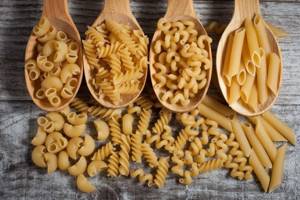
Be sure to read: How to quickly lose weight for the New Year - effective recipes and an example of a menu for one day
Important! When following a diet, it is recommended to drink clean water. It helps get rid of swelling and promotes the removal of excess fluid. Avoid drinking strong tea or coffee.
Contraindications to the cool diet
- Of course, people under 18 years of age and in old age, women during pregnancy or planning it, or breastfeeding, should not eat this way.
- Taboos for following this technique are diseases of the intestines and stomach, atherosclerosis, hypertension, impaired renal function, and any chronic diseases during the period of exacerbation.
- Those who play sports, especially professional ones, should not eat in the suggested way.
- It is highly advisable to consult with a qualified professional before starting such a strict diet.
Interesting recipes for the Maggi egg diet
Pangasius with leek
To prepare the dish you will need the following products:
- 2 pangasius carcasses;
- One lemon;
- 2 leeks;
- Black and pink pepper, salt to taste.
Leeks are cut into 2 halves, scalded with boiling water so that the leaves become soft, and the field is immersed in ice water for a few seconds. The leaves are dried. Pangasius fillets are sprinkled with lemon zest, salted, sprinkled with lemon juice and wrapped in leek leaves. Place the fish in a heat-resistant dish, add a little water to the bottom and bake in the oven for 15 minutes.
Chicken soup with carrots and curry
To prepare the dish you will need the following products:
- 1 tomato;
- 100 g chicken fillet;
- 30 g leeks;
- 0.3 kg carrots;
- Curry;
- Greenery;
- Eschalot bow;
- Garlic clove;
- A third of a lemon.
The chicken is cut into small pieces and fried in a dry frying pan (a few pieces of chicken are set aside). Add chopped leeks to the remaining chicken, followed by chopped carrots and tomatoes. The mixture is simmered under the lid for 15 minutes, then poured with water (0.35 l) and cooked until the vegetables are fully cooked. At the end of cooking, add curry, chopped garlic, lemon, onion, dill, and pass the soup through a blender. Before serving, place whole pieces of fried chicken on a plate.
Baked carrots with cheese and egg
To prepare the dish you will need the following products:
- One onion;
- 150 g carrots;
- 100 g homemade cheese;
- One boiled and one raw egg;
- Seasoning;
- Greenery.
The carrots are brought in a saucepan until half cooked, then chopped and fried in a dry frying pan. Add some water and seasoning. Add one raw egg and one boiled egg (finely chopped) to the frying. Place the dish in the oven for 5 minutes, then remove, sprinkle with herbs, decorate with cheese and serve.
Vegetable stew
To prepare it you will need the following products:
- Zucchini;
- Carrots and onions;
- Garlic clove;
- Eggplant;
- Tomato;
- Seasoning.
Grate the carrots, place them in a frying pan, add chopped garlic, peeled zucchini, sliced eggplants and tomatoes. Salt the vegetable mixture, add a little water and simmer under a closed lid until cooked. At the end of cooking, add greens.
Disadvantages of the Cool Diet
- When on a strict and long-term diet, you may experience lethargy and hunger. The likelihood of such manifestations is especially high in the first days of dieting, when the diet is especially meager.
- Constipation may occur when following the diet rules; in such cases, it is worth taking natural laxatives. Dieters often complain of increased thirst, so be sure to drink plenty of water.
- It is possible that approximately on the third or fourth day of following the dietary rules, you will encounter a feeling of bitterness in your mouth or notice a white coating on your tongue. The developers of the cool diet advise not to be afraid of this. In this way, the toxins accumulated in the body signal themselves, and now they are leaving. For the same reason, a rash may appear. As a rule, it goes away in a day or two. If this does not happen, be sure to consult a doctor.
- To maintain a great diet, you need to have strong willpower and endurance, because the method is not only strict, but also quite long.
About the harm
There is a lot of talk about how the chemical diet is dangerous because the diet is unbalanced. This is true: the body will not have enough carbohydrates and fats, which can provoke a loss of strength, decreased performance, irritability syndrome and even aggression.
Side effects often include bad breath and gurgling in the stomach. All this is a consequence of a large amount of protein in the stomach.
If everything is in order with your health at the beginning of the diet, you can endure it without any complications. But if you violate the contraindications, you will have no one to blame but yourself. You should not adhere to this nutrition system if:
- pregnancy;
- lactation;
- allergies to permitted foods (especially eggs and citrus fruits);
- gastrointestinal diseases;
- atherosclerosis;
- liver diseases;
- intolerance to approved products;
- endocrine diseases;
- hypertension;
- serious metabolic disorders.
Any of these diseases may react negatively to the chemical reactions in the body triggered by this diet. The result is exacerbations and all sorts of complications that will require treatment and long-term rehabilitation.




